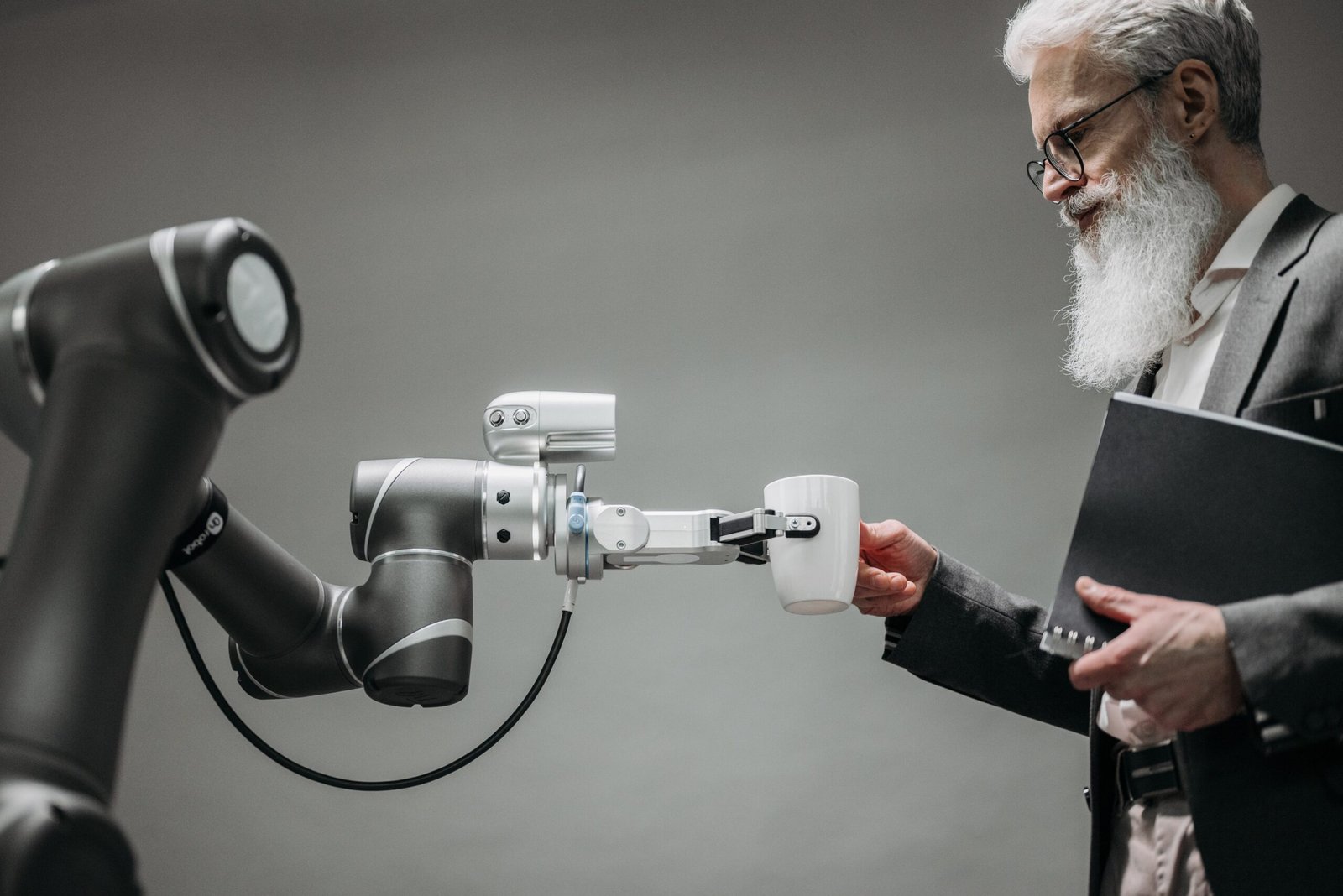Last Updated on August 9, 2024 by Daniele Lima
Find out what are the positives and negatives when using Artificial Intelligence in your business
It is already a fact that Artificial Intelligence (AI) is occupying an increasing space in several sectors, including the business world. Several companies, whether large or small, are already adhering to this technology to improve their operations, develop new products, and services, and increase business efficiency.
Today, a large part of those who are starting to undertake, wonder if it is feasible to use Artificial Intelligence, and how this technological novelty can be useful in their enterprise. But as everything has two sides, this innovation has its advantages and disadvantages that must be very well analyzed by the entrepreneur.
In this article, we will show the pros and cons of joining Artificial Intelligence when starting a business.
Some advantages are:
Table of Contents
Automation
The automation of repetitive and routine services is one of the main advantages of Artificial Intelligence.
It can be used to perform tasks such as data processing, inventory management, document classification, and many others. The advantage of this is allowing employees to focus on more complex and creative tasks, making them more productive and efficient.
Other benefits of this automation are the reduction of human errors, the ability to handle large volumes of information, with much more speed, making the work yield much in less time.
More informed decision-making

This decision-making action is a crucial part of being successful in any business. Artificial Intelligence is a powerful tool for improving business decisions.
The most interesting thing is that it can do this whole process in real time, identifying patterns and trends, and making decisions more informed and accurate.
It can analyze data, predict future results, provide personalized recommendations, and analyze customer sentiment, giving your business a competitive edge.
Improved customer experience
With the help of Artificial Intelligence, you can greatly improve your customer experience in many ways.
Chatbots and virtual assistants are very well-trained to respond to questions and requests quickly and objectively.
Personalization in service is very important to retain your customers. This analysis can be done through social networks, and comments, where you can identify patterns of behavior, and opinions, helping to reduce problems in this area.
Increased operational efficiency
Productivity advances significantly with the use of Artificial Intelligence, in several ways.
One way is by optimizing supply chain management, allowing companies to better manage their inventories and also reducing transportation costs.
In addition, it optimizes internal processes such as billing, accounting, and payroll.
Reduction of human errors

Artificial Intelligence can help reduce human errors in operations.
It can detect fraud in financial transactions, and analyze health data to identify patterns that may indicate illness, among other functions.
By reducing human error, companies can save time and money and improve the quality of their products and services.
For this error detection function to be effective, it is critical to ensure that the input data is accurate and unbiased.
Now let’s show some disadvantages when using Artificial Intelligence in your business:
Cost
One of the biggest barriers to using Artificial Intelligence is cost. Its implementation can be expensive, especially for small companies with limited budgets.
For companies to successfully implement this technology in their operations, they must invest in hardware, software, and human resources.
The cost of joining Artificial Intelligence can vary depending on the needs of each company.
technology dependency
Companies that use Artificial Intelligence in critical operations can be at risk if the technology fails or does not work properly.
In addition, technology is constantly evolving, which means that companies must constantly invest in innovations and new solutions to remain competitive.
This technological dependence can also occur when the company starts to depend on a team specialized in Artificial Intelligence, to carry out tasks that were previously done manually.
algorithmic bias
Artificial Intelligence is only as good as the data that feeds it. If the data used to train the algorithm is biased, this can lead to biased results.
For example, if a hiring algorithm is trained on data based on gender or race, it can lead to a biased selection of candidates.
Companies must take great care and have transparency in decision-making and oversight of the AI system to ensure that there is no discrimination or bias.
loss of jobs
Due to the potential of Artificial Intelligence to automate tasks that were previously done by humans, it has generated a very large loss of jobs.
This unemployment has mainly affected sectors that depend on repetitive or routine tasks.
With this, the number of layoffs will increase, replacing people with Artificial Intelligence, or the dismissal of people who do not suit it.
lack of human control
A potential problem with the use of Artificial Intelligence is the lack of human control over the business.
As this system is very well developed, it is possible that it develops independent capabilities and consequently starts to make independent decisions.
This can be a concern for many companies that want to keep their operations under human control and make informed decisions based on valid information.
Conclusion:
In short, Artificial Intelligence has been dividing opinions about its advantages and disadvantages. It is up to each company to evaluate and analyze its needs to know if it is feasible to adhere to this technological innovation or not.
We know that digital is growing every day, and the trend is really for most businesses to adhere to new technologies.
On the other hand, we still have a good group that highly values humanized work.
The point is that working with common sense is ideal, as both the work done by humans associated with some Artificial Intelligence deployments can give an excellent return without any damage to the company or the employees.
Artificial Intelligence – FAQ:
Which of the following are steps you can take to learn about artificial intelligence (ai)?
To learn about AI, start by searching for online courses and tutorials that cover important topics in high detail from reputable sites like Coursera, edX, and Udacity. Reading books and articles written by experts in the field can provide in-depth knowledge and understanding of current events and issues. Joining AI-focused communities and forums, such as AI conferences, webinars, and local forums, can help you stay informed and connected to experts.
Performance is important; Work on projects, use AI development tools and experiment with data to hone and improve your skills. Additionally, pursuing a technical education, such as an intelligence-focused bachelor’s degree or certificate in computer science or information science, can provide greater insight and understanding of the field.
How artificial intelligence is transforming contact centers
AI is revolutionizing the contact center by improving customer experience and efficiency. AI-powered chatbots and virtual assistants can take routine questions and provide instant answers, freeing up human agents to focus on complex issues. AI-powered analytics analyze customer interactions to identify trends and predict customer needs, enabling personalized service and solutions.
AI also improves staff management by predicting calls and optimizing staffing, reducing wait times, and increasing customer satisfaction. By automating repetitive tasks and providing quick insights, AI helps contact centers operate more efficiently, reduce costs, and improve overall service quality.
How will quantum computing affect artificial intelligence applications
Quantum computing promises to advance artificial intelligence applications by solving complex problems faster than traditional computers. The ability to process large amounts of data simultaneously speeds up machine learning algorithms, resulting in faster learning times and more accurate models.
Quantum computing can improve AI skills such as pattern recognition and decision-making, making them more efficient and effective. In addition, it can handle high-dimensional data and complex simulations that cannot currently be done with traditional computing, opening up new possibilities for artificial intelligence in areas such as cryptography, drug discovery and climate modelling. As quantum computing technology matures, it is expected to revolutionize artificial intelligence with advances in computing power and problem solving.











Leave a Reply